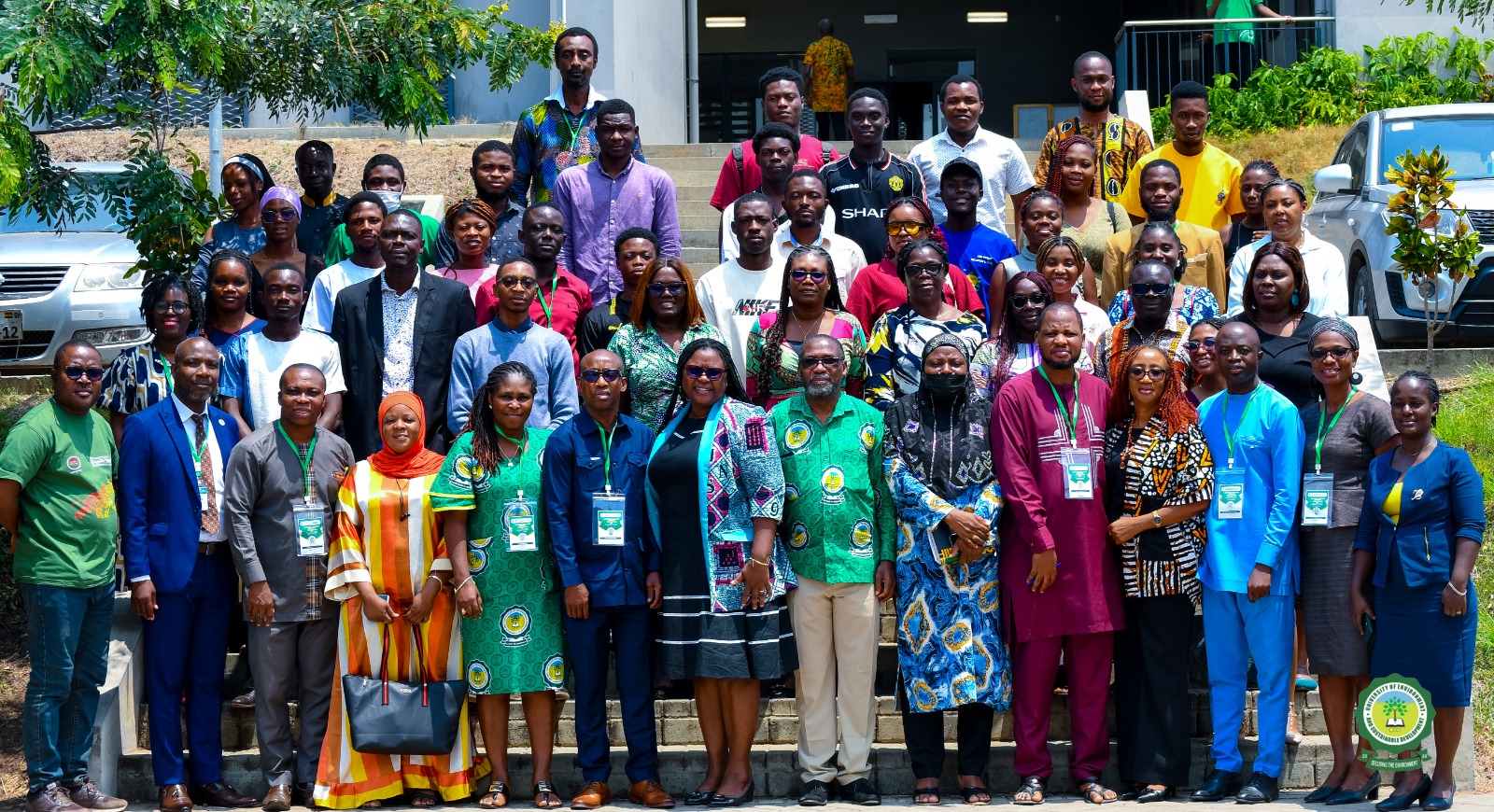The UESD 5th Sustainable Development Conference held from 4th-6th September,2025 has ended with calls for Sustainable Environmental Management and Food Security. On the final day of the conference there were addresses, symposia and presentations from researchers on various topics.
It began with two separate addresses on: Building Systems and Infrastructure for Sustainable Environmental Management and Food Security-a presentation by Miss Sylvia Baidoo, an Assistant Lecturer at the Department of Environment and Public Health, and Mr. Caleb Adan Blassey, a consulting partner, Calsward Consult. Miss Baidoo’s presentation focused on building systems for sustainable environmental management and food security. She stated the importance of systems because food security is directly dependent on the health of the environment. To build systems, Ms. Baidoo defined the following steps: Defining the problem, applying system thinking, stakeholder engagements, designing adaptable tools and processes, and implement, monitor, evaluate and improve. She concluded by advocating building systems that are not in isolation.
In his presentation, Mr. Blassey underscored the important role the environment plays in food security. To achieve a sustainable environment there should be a resilient infrastructure and good governance to achieve. He explored effective transportation, irrigation, crop diversification, energy, fair trade and farmer protection among others things as some of the pillars of environmental management and food security.
He concluded his presentation by highlighting some opportunities Ghana can leverage on, including integrated investments, regional trade corridors, youth-led ICT and renewables, and Public-private partnerships. Symposium A symposia was moderated by the Pro Vice-Chancellor of UESD, Prof. Edward Wiafe Debrah. Dr. Nathaniel Annorba, Head of Department of Biological Sciences, presented on Research and Conservation of Critically Endangered Vultures in Ghana: An Urgent Call to Action.
He highlighted the importance of vultures in the ecosystem because they help to remove waste from the environment. He explored the significance of vultures and the threats to their survival in the ecosystem. He concluded his presentation with a call to protect vultures since they play a critical role in the environment. A Lecturer at KNUST, Dr. Collins Ayine Nsor also presented on Assessing the Distribution and habitat preference of Leopards in the Mole National Park: The Impact on Its Conservation. It revealed that data on the distribution of leopard in Ghana is scanty. Cameras are set as traps to assess the distribution at the park and it was found out that, leopards are widely distributed at the park but face pressures from illegal activities, prey availability and interspecific competition. He concluded with a call for protecting this important specie.
Mr. Mac Elikem Nutsuakor, an Assistant Lecturer at KNUST also presented on the topic Monitoring matters in protected Areas: Camera trap survey of flagship mammals in the Bomfobiri Wildlife Sanctuary, Ashati Region, Ghana.
The study also deployed camera traps to assess information. It revealed three most abundant species in the wildlife. These include Olive Baboon, Savanna Buffalo, and Red-River Hog. He encouraged the protection of these animals. At the end of the conference, Prof. Wiafe Debrah extended appreciation from Vice-Chancellor, Prof. Nyarko-Sampson to organisers and participants for the roles they played to make the programme a success.

